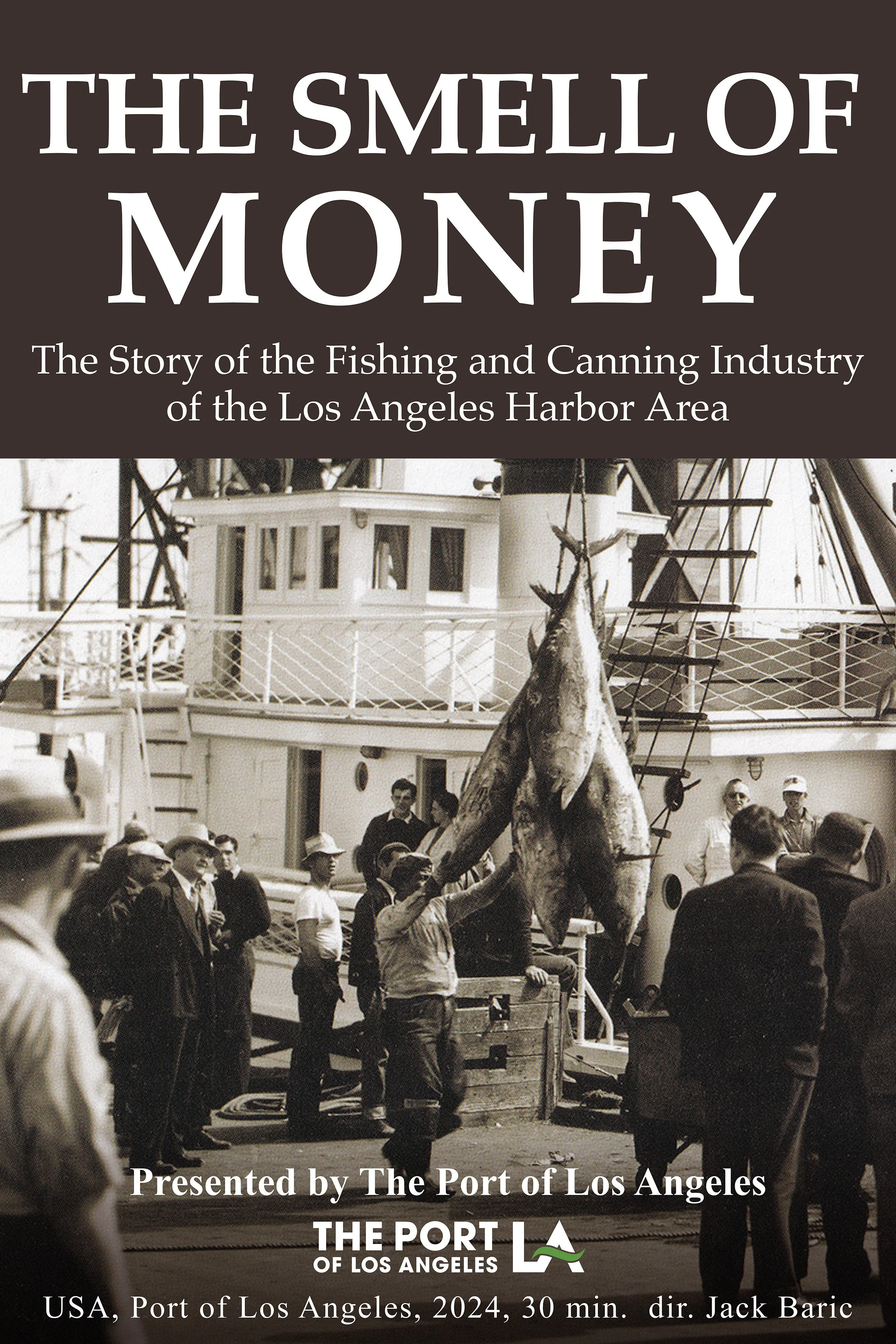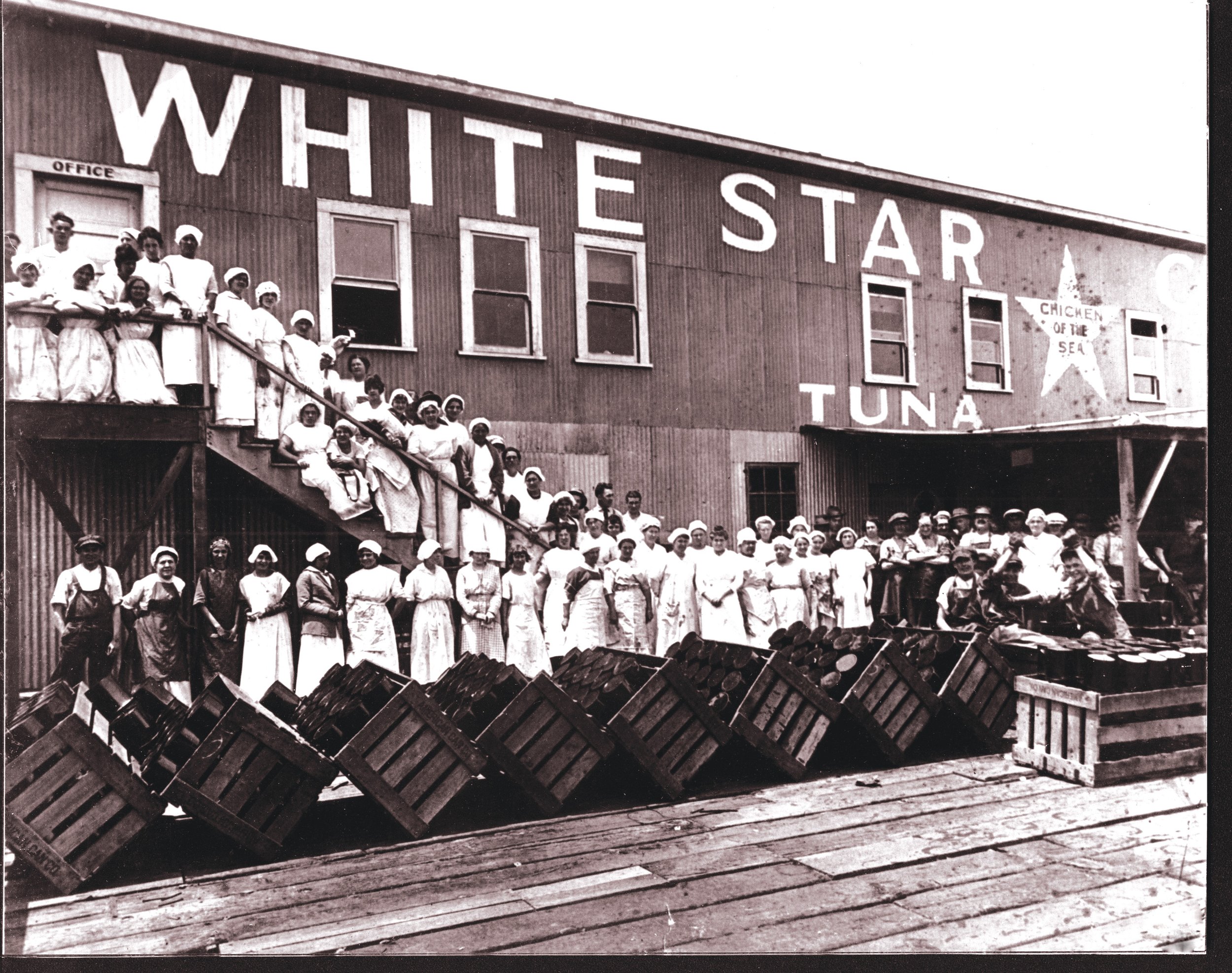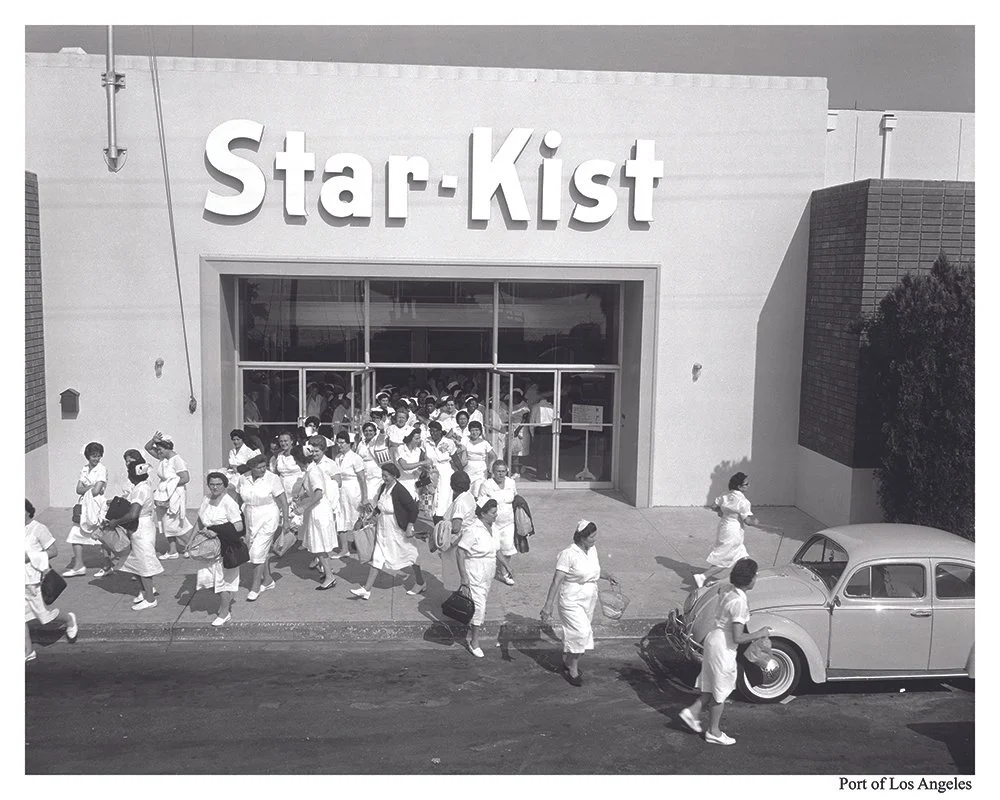Catching Prosperity: San Pedro's Legacy in 'The Smell of Money By Writer and Contributor Julie Sharp
What’s the smell of success? For San Pedro, it was the stink of fish that awarded so many the American dream, a comfortable life, and that’s the story told in the newly released documentary, “The Smell of Money.”
The port town’s foundation was built on the fishing industry, by the hands of immigrants, where old-world knowledge blended with trade innovations to create a booming local economy.
San Pedro's coastal waters attracted fishermen from Italy, Croatia and Japan, bringing generations of knowledge to the area.
Choosing “The Smell of Money” title for the documentary was a “no-brainer” for the film’s director, Jack Baric. “That was the easiest title I’ve ever come up with,” Baric said.
The son of Croatian immigrants, born and raised in San Pedro, Baric said some of his family members were part of the industry and they all knew that fish smell and prosperity were synonymous. When the canneries were operating, money was being made.
“I’ve gotten really, really, really wonderful feedback on ‘The Smell of Money,’ and just because it means so much to the people in the community,” Baric said. “It tells the story of their forefathers, their dads, their moms, aunts and grandparents.”
Baric’s work frequently intertwines with the San Pedro in him. His background ranges from magazine publication and entertainment reporting, to documentary and short film production. In 2022 he started the community publication, San Pedro Today, and it’s still going strong.
“I got into documentary filmmaking from the storytelling perspective,” Baric said. Over a 10-year period, he took producing and screenwriting classes to support his developing interests, to move outside of just the written word — to produce.
His first documentary, “Port Town,” is about San Pedro. He called it a great learning experience, a self-created film school. That experience paved the way for his Emmy Award winning documentary about West Coast dockworkers, called “Bloody Thursday."
Then comes the pitch from the Port of Los Angeles last year to make a documentary about the town’s fishing industry — an easy ‘yes’ for Baric. “I get to get paid to make a story that documents the history of my community,” Baric said.
Port of Los Angeles Public Relations Representative, Leigh Smith. produced the documentary and said the idea to document the fishing and canning industry was a way to honor community members and for a new generation to understand the history of the San Pedro, Wilmington and harbor area.
“People in the community have a connection one way or another to the cannery, fishing industry here,” Smith said.
She said the decision to choose Baric as the director was two-fold, because of his talent as a journalist and storyteller and also because he is part of the story, he’s a local.
While it is a story Baric is familiar with, he said there were some things he learned while working on the project.
“I didn’t realize how much, how good of the job the industry did in marketing, and connecting to Hollywood,” Baric said.
The stories of the canneries are part of the documentary, with StarKist tuna generating advertising campaigns that were ahead of their time.
"I knew that WWII played a big role in helping to build the industry, because I knew that G.I.’s were eating canned tuna, and they came home after having developed a taste for it. What I didn’t know was how good the industry was at marketing itself, really making it a staple of the American diet.”
The ads showed families eating tuna and demonstrated all the ways to make it, even providing recipes for lunch and dinner – topped off with the animated Charlie the Tuna mascot. “It’s brilliant in its simplicity,” Baric said.
He also learned along the way, that the Japanese brought pole fishing to the industry here, predating the nets. “I didn’t realize, I wouldn’t have known, that there was already such an established amount of fish being caught just the old fashioned way, with poles, before they actually started dropping nets into the sea.”
He said his favorite line of the documentary is the last one — “People came here with nothing, and through this opportunity, they were able to make something.”
It’s the quintessential American story, where hard work created prosperity in the community that exists to this day. As Baric said, “We lost the fishing industry, but we gained a lot of doctors, lawyers who were the sons and granddaughters and grandsons of the fishermen.”
Smith said it’s a story that many in the community already know, but the documentary brings it to life with its vast collection of family photos, videos and stories.
“It does stir emotions. It brings back great memories in a lot of ways,” Smith said.
The “Smell of Money” runs 30 minutes and can be seen on the Port of Los Angeles: America’s Port YouTube page.
Julie Sharp is a video journalist for a major broadcast news corporation in Los Angeles. She also wrote for the Beach Reporter weekly newspaper covering the city of Manhattan Beach. She is a South Bay native, attended Mira Costa High School and majored in print journalism at California State University Long Beach. She currently resides in Palos Verdes Estates. Much of her current work is shared in photos at:








